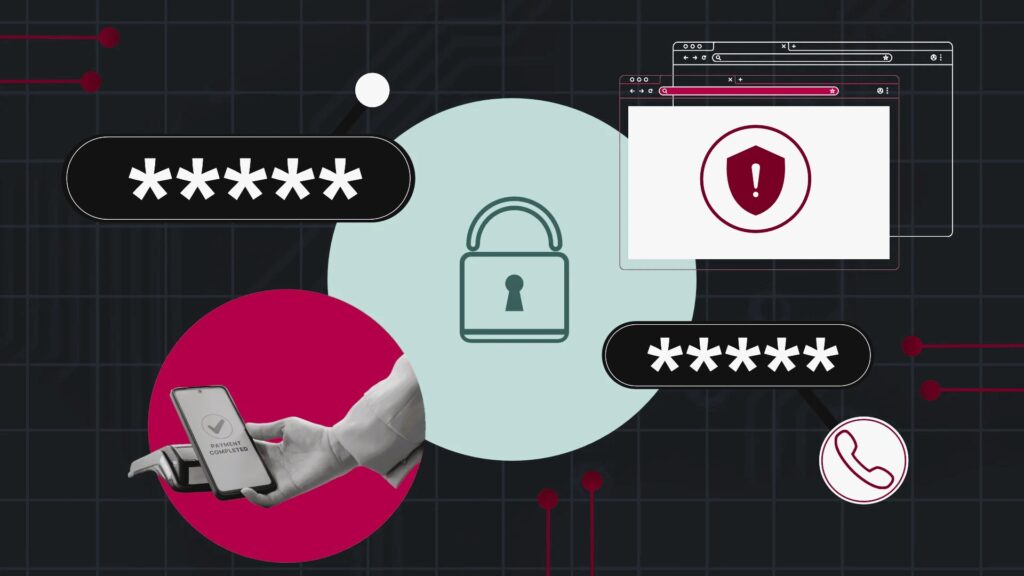In today’s digital age, online gaming is not just about fun and competition—it’s also a potential target for cyberattacks. Whether you’re playing competitively or casually, securing your connection while gaming is crucial to protect your data, identity, and gameplay experience. Cybercriminals can exploit vulnerabilities in your network to disrupt your gaming sessions, steal personal information, or even launch DDoS attacks. In this article, we’ll guide you through steps to secure your connection and ensure your safety while gaming online.
Why is Securing Your Connection Important?
Online gaming often requires fast, uninterrupted internet connections, which make gaming networks an attractive target for attackers. The threats include:
- DDoS (Distributed Denial of Service) Attacks: These attacks flood your network with excessive traffic, causing your connection to slow down or completely disconnect.
- Phishing: Hackers may impersonate game developers or fellow players to steal your login credentials or payment information.
- Malware: Malicious software can be disguised as game updates or add-ons and can infect your system, leading to data theft or account compromise.
- Man-in-the-Middle (MITM) Attacks: Attackers intercept your network traffic to steal personal data or disrupt your gameplay.
To avoid these risks, it’s essential to take the necessary precautions and fortify your online security.
Steps to Secure Your Connection While Gaming Online

1. Use a VPN for Online Gaming
A Virtual Private Network (VPN) encrypts your internet traffic and masks your IP address, preventing attackers from pinpointing your location and launching targeted attacks. VPNs can also help prevent DDoS attacks by making your connection more difficult to track. Choose a gaming-optimized VPN that provides low latency to minimize any impact on your gaming experience. Increasing FPS in online games by optimizing network settings, read more in this article.
2. Enable Two-Factor Authentication (2FA)
Many gaming platforms, such as Steam, Epic Games, and Xbox Live, offer Two-Factor Authentication (2FA) as an added layer of security. This requires you to verify your identity through a second method (like an SMS code or authentication app) in addition to your password. By enabling 2FA, you reduce the risk of unauthorized account access, even if your login credentials are compromised.
3. Keep Your Software and Games Updated
Cybercriminals often exploit vulnerabilities in outdated software, including your operating system, game clients, and routers. Always keep your system, games, and router firmware updated to patch any known security holes. Enabling automatic updates ensures that you don’t miss out on essential security fixes.
4. Use Strong, Unique Passwords
Avoid using the same password across multiple platforms, and make sure your gaming accounts use strong, unique passwords. A good password should include a combination of uppercase and lowercase letters, numbers, and symbols. Consider using a password manager to securely store and generate complex passwords.
5. Secure Your Router
Your home network is your first line of defense against attacks. To secure your router:
- Change the default username and password of your router.
- Enable WPA3 encryption for your Wi-Fi network.
- Disable remote management if you don’t need it.
- Set up a guest network for visitors to prevent them from accessing your main network.
6. Avoid Public Wi-Fi for Gaming
Public Wi-Fi networks can be a hacker’s playground, offering minimal encryption and allowing attackers to easily intercept your data. If you must game on a public network, always use a VPN to encrypt your traffic. However, for optimal security, it’s best to game on a private network.
7. Monitor Your Network Traffic

Monitoring your network traffic can help you detect unusual activity, such as DDoS attacks or attempts to breach your connection. Use network monitoring tools to check for sudden spikes in traffic or unauthorized devices connected to your network.
8. Be Wary of Phishing Scams
Phishing attacks can come in many forms, such as emails, social media messages, or fake websites that mimic legitimate game platforms. Always verify the source before clicking any links or downloading files. If a deal sounds too good to be true, it probably is. Never share your login credentials with anyone, and report suspicious activity immediately.
Additional Resources
For further reading on internet security and standard practices for securing online connections, check out the article on Internet Security Standards at Wikipedia, where you can find a detailed overview of various security protocols and tools used to protect your data.
Securing your connection while gaming online is not just about keeping your game running smoothly—it’s about protecting your personal data, your accounts, and your overall online experience. By implementing the tips and best practices outlined in this article, you’ll significantly reduce the risk of falling victim to cyberattacks and enjoy a safer, more secure gaming environment.
Stay vigilant, use secure connections, and protect yourself from the digital threats that lurk in the online gaming world.


